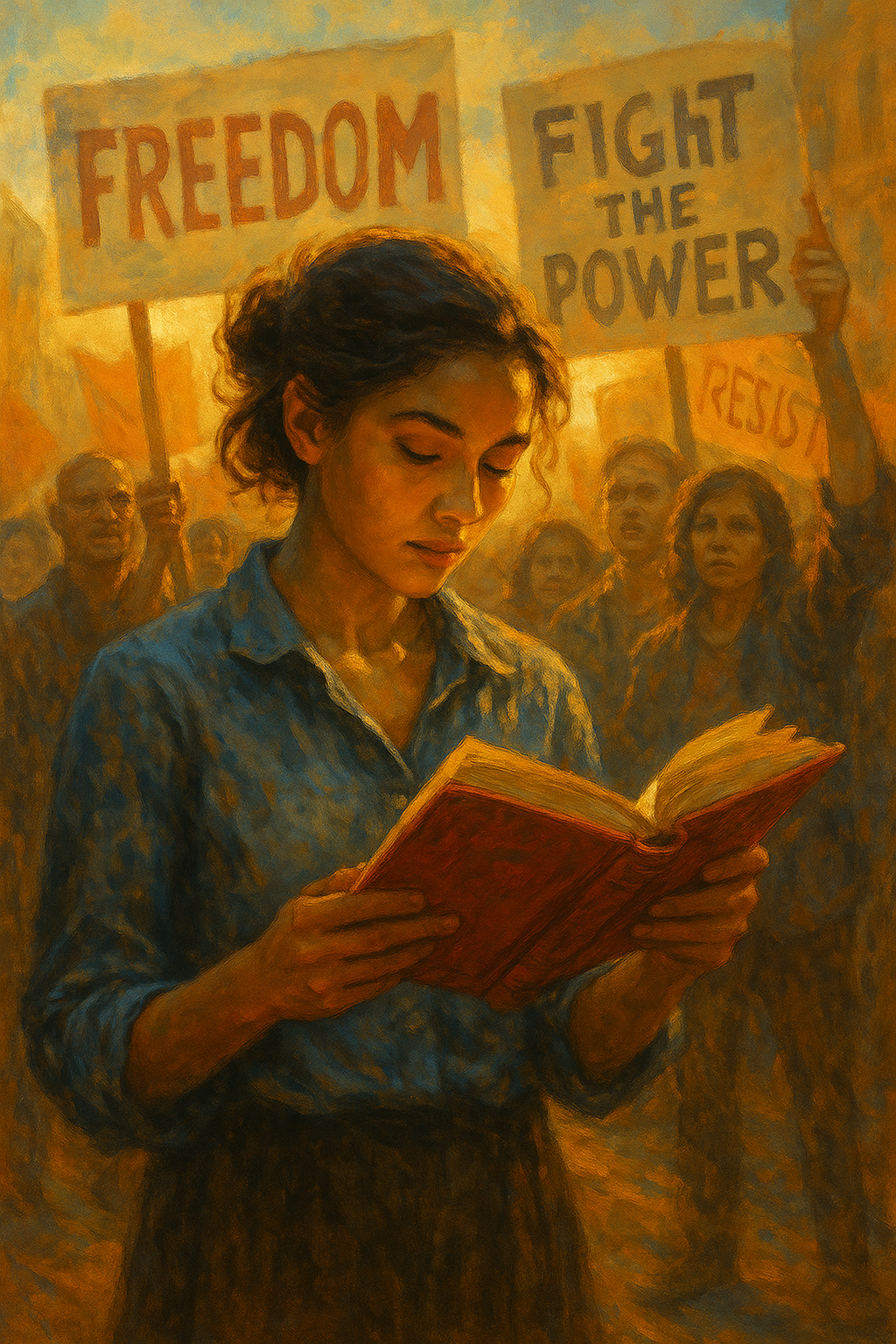In contemporary society, the question arises: Is literature still a tool for rebellion? With political strife and social injustice rampant across the globe, literature as a tool for rebellion continues to emerge as a powerful voice in the fight for change. This article delves deep into the role that literature has historically played in sparking revolutions, fostering social movements, and inspiring individuals to question the status quo.
The Historical Context of Literature as a Tool for Rebellion
Throughout history, literature has consistently served as a means of dissent and expression. From ancient texts to modern-day novels, writers have used their craft to challenge oppressive regimes and social injustices. For instance:
* George Orwell’s 1984 — A portrayal of totalitarianism and surveillance.
* Margaret Atwood’s The Handmaid’s Tale — A critique of gender oppression and authoritarianism.
* Chinua Achebe’s Things Fall Apart — A commentary on colonialism and cultural clash.
The power of literature in protests cannot be understated; it not only provides a voice to the voiceless but also stirs empathy and mobilizes action. These literary works demonstrate how rebellion in literature can influence social change.
How Literature Inspires Rebellion
1. Literature Reflecting Societal Issues
Literature ideally mirrors societal issues, making it a vital tool for rebellion. Writers often shed light on injustices, calling for awareness and change. For example, during the Civil Rights Movement, poets and authors like James Baldwin and Maya Angelou amplified messages of resistance and hope through their powerful works.
2. The Impact of Literature on Culture
The impact of literature on culture extends far beyond mere entertainment. Books can foster connections among diverse groups, igniting discussions around topics like race, identity, and inequality. For example, To Kill a Mockingbird by Harper Lee encouraged conversations about racial injustice, inspiring readers to advocate for social reform.
3. Literature and Political Resistance
Literature and political resistance go hand in hand. Governments often censor or ban books that challenge their authority, proving that powerful narratives pose a threat to the status quo. In countries like China, where the state exercises strict control over literature, banned books have become symbols of rebellion. Authors such as Gao Xingjian and Mo Yan faced significant risk due to their works, highlighting the essential role of literature in political resistance.
Books That Inspire Rebellion
Several notable books encourage readers to question authority and inspire rebellious attitudes:
* Fahrenheit 451 by Ray Bradbury: A cautionary tale of censorship and the loss of intellectual freedom.
* The Grapes of Wrath by John Steinbeck: A reflection of economic hardship and resilience against oppression.
* Catch-22 by Joseph Heller: A satirical look at the absurdity of war and bureaucracy.
These texts not only narrate stories but also incite readers to consider their roles in fighting for freedom and justice.
The Role of Literature in Activism
Engaging Modern Movements
In recent years, literature has played a crucial role in modern movements, from #MeToo to Black Lives Matter. Novels, essays, and poetry continue to educate and inspire activists, fostering solidarity and providing tools for effective protest. Works such as _Why I’m No Longer Talking to White People About Race by Reni Eddo-Lodge and The Hate U Give by Angie Thomas have sparked conversations around race and equity, affecting public perception and policy.
Literature as a Voice for the Voiceless
Literature as a voice for the voiceless empowers marginalized communities. By sharing their stories and struggles, authors can bring attention to issues that might otherwise go unnoticed. Non-fiction works, too, illuminate the barriers faced by various groups, opening avenues for understanding and empathy.
The Evolving Landscape: Digital Literature and Rebellion
In the age of the internet, literature as a tool for rebellion has transformed. Digital platforms allow for more voices to be heard, enabling rapid dissemination of ideas and mobilization of movements. Social media has become a stage for literary activism, where poetry sharing, blogs, and virtual readings can reach global audiences.
However, this decentralization comes with challenges, such as misinformation and censorship. Yet, it illustrates how literature’s role in rebellion adapts to new technologies, pushing boundaries and fostering change.
Conclusion: Is Literature Still a Tool for Rebellion?
Ultimately, literature as a tool for rebellion remains as relevant today as it has ever been. Through the lens of diverse authors and genres, readers are continuously invited to engage with societal challenges, ignite change, and inspire communities to voice their concerns. The question now beckons: how will you harness the power of literature in your fight for justice?
